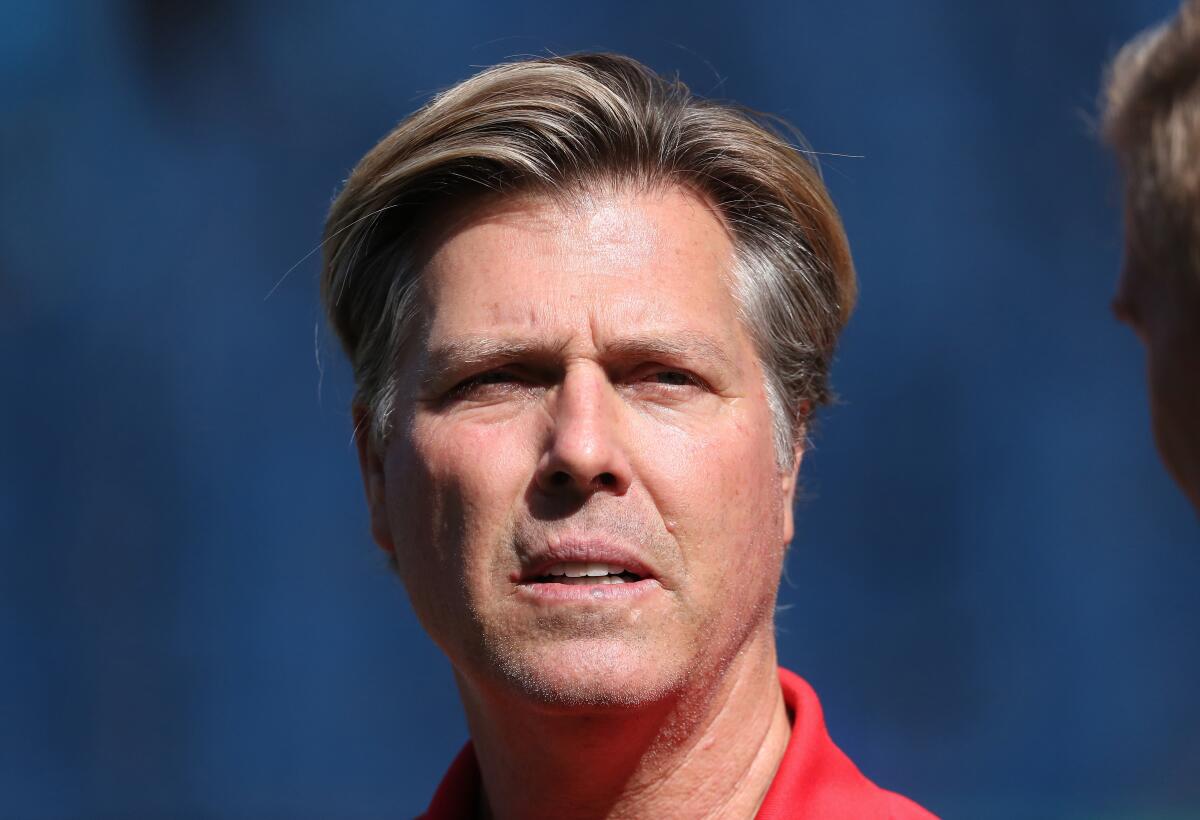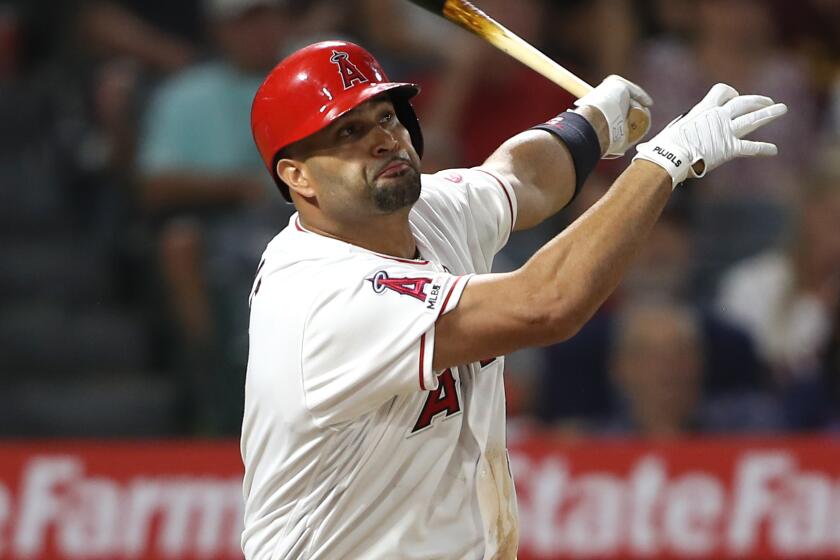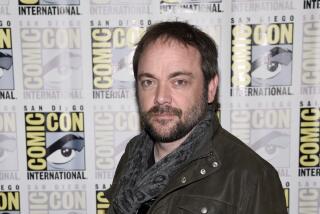Angels broadcaster Mark Langston says ‘life is different’ after cardiac emergency

Angels broadcaster Mark Langston stood a few feet outside the Angel Stadium radio booth from which he provided analysis for seven years, discussing nonchalantly Sunday the medical emergency that put him in a Houston hospital a little more than a week ago. He was healthy and feeling physically normal, he assured reporters. He was happy to be home around the people who meant the most to him.
But as soon as he was asked how he was handling the emotional impact of nearly losing his life to sudden heart failure, Langston paused to collect himself. Tears welled in his eyes as he watched his grandson Ever, 6, wander around the booth.
“I’m not gonna lie. Life is different,” Langston said before his voice broke. “I’m good but it’s different. It’s definitely different. I have to look at it that way. There’s a reason that I was given extra time. I don’t know what it is but there’s a reason for it.”
Langston, 59, had just finished calling the lineups for the Angels’ Sept. 20 game against the Houston Astros when he lost consciousness in the radio booth at Minute Maid Park. He later learned he had suffered from ventricular fibrillation, a condition that essentially weakens the heart and prevents it from pumping blood.
The last thing he could recall after realizing he had been loaded into an ambulance was watching Astros starter Zack Greinke complete his warmups and Angels infielder David Fletcher remove a weighted ring from his bat in the on-deck circle.
What unfolded after Langston blacked out shook broadcast partner Terry Smith, who said the medics “brought Langston back.” Langston was slumped over in his seat when people in the radio booth came to his aid. Technician Jorge Sevilla ran down the hall looking for medics and came back with Houston Police Department commanders Paul Follis and Daryn Edwards, who happened to be in the dining room.
Within 90 seconds of the cardiac malfunction, Langston was given CPR by the police officers. Shortly thereafter, medics arrived and attached a defibrillator to Langston. His heart did not start pumping blood again until the machine shocked him back to life. The heart monitor’s report, which he brought with him to the ballpark Sunday, showed that he was clinically dead for 3 1/2 minutes.
“How this whole thing played out in a positive end for me, they can’t explain,” Langston said. “Every doctor I talk to says you are an absolute miracle because this doesn’t happen.
In the age of launch angle and defensive shifts, the Angels’ Albert Pujols laments that batting .300 lifetime is becoming obsolete even as his own average dips.
“Everything has a purpose and reason. I totally trust that. I trust the way things operate. It was not my time. That’s the only thing I can say.”
Langston returned Saturday to Southern California, where he will spend the offseason allowing his body to adjust to the defibrillator inserted in his chest.
Despite being in the hospital for a week, Langston still doesn’t know what caused his heart to malfunction. He felt well before blacking out and he is confident no heart problems should arise again. He is a self-described health fanatic, his clean-eating habits stretching back to when he was an MLB pitcher from 1984 to 1999.
“They said I have the heart of a healthy 35-year-old,” Langston said.
More to Read
Go beyond the scoreboard
Get the latest on L.A.'s teams in the daily Sports Report newsletter.
You may occasionally receive promotional content from the Los Angeles Times.







